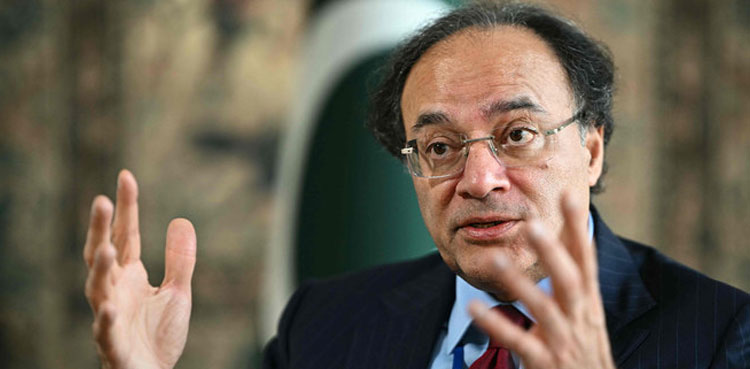WASHINGTON: Pakistan is seeking to boost imports from the United States, particularly cotton and soybeans, and eliminate non-tariff barriers to avoid the impact of President Donald Trump’s tariffs.
In an interview with Bloomberg News, Finance Minister Muhammad Aurangzeb explained, “It’s a bigger canvas that we are looking at in terms of engaging the US, We will constructively engage, and we will have a formal delegation coming in”.
Aurangzeb is in the US for to participate in the Spring Meetings of the International Monetary Fund and the World Bank.
He confirmed that Pakistan is aiming to buy more cotton and soybeans from the US and is also negotiating the removal of non-tariff barriers to open up its markets to more US products.
“We can also look at if there are any issues with respect to non-tariff discussion, whether there any onerous inspections at our end for US products, we can obviously view that,” he added.
Pakistan is working to gain reprieve from the 29% reciprocal tariffs imposed by President Trump. While the tariffs are currently on hold until July, Pakistan has announced plans to send a trade delegation to Washington in the coming months to bridge the trade gap.
The United States is Pakistan’s largest export market, with over $5 billion in annual exports as of 2024, while Pakistan imports around $2.1 billion from the US.
The finance minister also expressed openness to foreign direct investment from US companies, particularly in Pakistan’s newly opened minerals and mining sectors.
Read More: Pakistan mulls US oil imports to ease trade imbalance
He emphasized that Pakistan aims to avoid the boom-and-bust cycles of the past and achieve sustainable growth.
“What we are looking for is how we get away from a boom and bust cycle which Pakistan has gone through and get on to a sustainable growth path,” he said.
Additionally, Pakistan is preparing to debut its first-ever Panda bond, valued between $200 million and $250 million, which is expected to take place in the fourth quarter of this year, according to the minister.


Leave a Comment